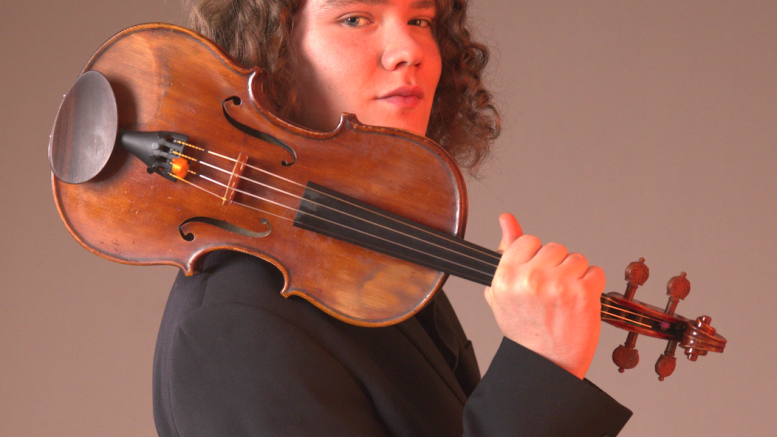On April 3, Canadian concert violinist and composer, Jack Campbell, will present his long-time project, Sounding Bombe in Winnipeg. Inspired by the mathematical systems used by both the Axis and Allies in the Second World War, Campbell’s music highlights the ingenuity of humans in times of violence and hardship.
In an interview, Campbell described his compositional style as experimental modern classical music, drawing inspiration from a variety of genres, including Renaissance and Baroque music, as well as improvisational jazz and electronic sound art mediums. He also has special interests in how music overlaps with other disciplines.
“What really fascinates me about music is the connection between music and science and music and history,” he said. “Music is a mathematical phenomenon, from the way that sound projects, to the way in which we receive sound, to the way in which, sort of, logical musical form and logics of harmony are created through musical patterning.” After five years of work, Campbell’s piece premiered at the National Museum of Computing in England last November. He is now on tour in Canada, New York City and the U.K., ending with a record release this summer and five shows at the Edinburgh Festival Fringe, the world’s largest arts festival.
Campbell said Sounding Bombe is inspired by the Enigma, the machine used by the Axis powers to encrypt radio transmissions, and the Bombe, the machine invented by Alan Turing in the U.K. to crack the Enigma code. The Bombe machine shortened the war by many years, saving countless lives and changing the course of human history.
“I’ve built musical versions of the Enigma and Bombe machine using linguistical and mathematical data to translate it. And what you will hear is you will hear a very beautiful folk melody, which was actually Alan Turing’s favourite piece of music that he used to play on the violin himself, decrypted,” said Campbell.
“So you will hear it encrypted into something that’s totally atonal and experimental, and you can’t really find the patterning to it, but it is played in a Morse code rhythm to grab your attention, and then over the 50 minutes of the piece, it will gradually be decrypted in a way which you won’t understand musically until it returns to this beautiful original melody.”
Given recent global events, Campbell said, the Second World War and technological advancements remain relevant topics. With his music, he hopes to highlight the power of ingenuity and creativity in challenging hostile forces in the world.
“This piece celebrates how some of the most brilliant scientists of human history used their brilliance to protect humanity and to fight against injustice. And some of these scientists, mainly Alan Turing, due to the fact that he was LGBTQ, later experienced severe injustice themselves,” he said.
“I would like this piece to serve as a reminder of what the brilliance of the human mind is capable of, and how we can use — each one of us can — use our individual gifts and talents to protect humanity against evil. And I also think it’s a reminder that cultural activity is a tool against injustice, and it is so important to celebrate that part of music.”
Sounding Bombe for solo violin will take place at Sidestage (700 Osborne St.) on April 3 at 7:30 p.m. Tickets are available at sidestagewpg.com.


